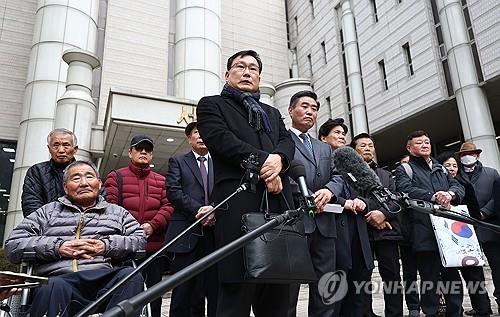Ref.>"韓国の製造業生産、通貨危機以来 25年ぶりに最大幅の減少"
>"韓国、昨年の税収 56兆ウォン不足 国の負債は1100兆ウォン超える"
>"韓国外交部、独島に「在外公館」表示 教授「韓国領土でないということ」"
-----------------------------------------
> 韓国、徴用工代位弁済案が破綻しまくった挙句『日本が助けろ!』のクズ過ぎる発言がやばい【ゆっくり解説】
↓(See detail of this article)、産経新聞の記事の翻訳(Translation of an article of The Sankei Shimbun)
Translation; It's even possible that the Japanese companies will lose = the Seoul High Court in S. Korea reversed the 1st trial verdict in the conscripted workers lawsuit and ordered the case sent back to the lower court
>"韓国ソウル高裁が徴用工訴訟で一審判決を破棄、差し戻し 日本企業が敗訴する可能性も"
> 韓国人元徴用工らが日本企業に損害賠償を求めた訴訟の控訴審判決でソウル高裁は1日、訴えを却下した一審判決を「問題がある」として破棄し、ソウル中央地裁に審理を差し戻した。
> 一審判決は賠償を初めて確定させた 2018年の最高裁判断に従わず、原告の請求権行使を認めていなかった。
> 日本企業が差し戻し審で敗訴する可能性が出てきた。
In an appeal court sentece in a lawsuit that former S. Korean conscripted workers and so on seek compensation to the Japanese companies, on Feb. 1, the Seoul High Court reversed the 1st trial verdict which dismissed the complaint, saying that "it's problematic," and ordered the case sent back to the Seoul Central District Court.
The 1st court sentence didn't follow the Supreme Court of Korea ruling in 2018, which finalized the compensation for the 1st time, and didn't acknowledge execution of claim rights of the plaintiff.
It becomes that the Japanese companies will possibly lose in the reversed court.
> 原告側弁護士は「一審判決は、請求権の正当性に関して実質的な判断をしなかった。高裁判決は妥当だ」と述べた。
> 訴訟は元徴用工や遺族ら計 85人が15年、三菱マテリアルなど16社を相手取り、1人当たり1億ウォン(約1100万円)の損害賠償を求めて起こした。
The plaintiff's lawyer(s) stated that "The 1st instance judgment did not make a substantive judgment regarding the legitimacy of the claim rights. The high court ruling is appropriate."
The lawsuit was filed in 2015 by totally 85 persons, including a former conscripted workers and their families, against 16 companies, including Mitsubishi Materials, seeking damages of 100 million won (approx. \11 million) per person.
> ソウル中央地裁は 21年の判決で、1965年の日韓請求権協定には請求権に関し「完全かつ最終的に解決された」との文言があり、訴訟による権利行使は制限されるとして訴えを却下した。
In its sentence in 2021, the Seoul Central District Court dismissed the lawsuit, saying that Japan-RoK claim rights agreement (1965) stated on the claim rights that "completely and finally settled," execution rights through litigation was therefore restricted.
